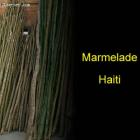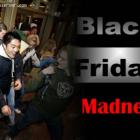ADVERTISEMENT
Creole - Haiti Observer Blog
Creole, Haiti Observer Blog. Read the following articles about Creole
Haitians who refer to French when caught lying
Why do Haitians have to speak French when they are cornered or caught lying? You probably think I am once again making this up; however if you haven't notice that, I am asking that you pay close attention to our leaders during their conversation.
As a Haitian observer, I have been observing this for a while and I think it is about time that we talk about it.
Don't you realize that by now that many of our leaders will change a nice Creole conversation into French? I suspects that their French comes up usually whenever they are caught lying or want to bluff us. At that point most become very philosophical. You start hearing:
Annual Festival Creole promoting tourism to the Creole World
As the Haitian Government still runs with the goal of making Haiti a bigger, better tourist country, they've embraced marketing strategies and hosted events aimed at luring people from America, Europe and other far away countries. Also, they have thought up a way to garner interest in Haiti from those a bit closer to home.
The Festival Creole, held in the Seychelles for the past 28 years, is by far, the most patronized event in the Creole-speaking world. It is, in fact, the only one of its kind within the Creole Community of Nations. Showing the best in Creole talent offered in the various countries home to people of that characteristic, the festival highlights the best on offer from the more well-known as Creole countries such as: Mauritius, the Seychelles--a group of islands in the Indian Ocean, and La Reunion, as well as those in the Caribbean and North America including the Creole found in Louisiana, Guadeloupe, Martinique, Guyana and Haiti.
Haiti Education System is useless, show me otherwise!
How many of you believe that our education system has a lot to do with our inability to change Haiti? Making us into: "Aristrokrat Dyol Printi"; "Ti France", "Mwe Pa Min Moun Avek-ou". To tell you the truth, these are what I see our education system is good for.
We are proud of speaking French than the French born citizen. Our love to use French words in our sentences so complicated and so rare in usage that the a typical French citizen would probably ask you to provide some translation for then
Unfortunately, this is the most important thing I have learned from my education in Haiti.
Creole community united
The Creole community is constantly growing in the world. Recently on 28th October they celebrated 28th annual gathering in Victoria, the Creole capital of the world. In the international calendar this day is remembered as "World Creole Day". Many musicians from La Reunion, Mauritius, Rodrigues, Martinique, Seychelles and Haiti performed one after another on this occasion before joining a family show at the end.
Many journalists were present in the audience. "Unbelievable" was the one single word to describe their experiences in the diversity and self belongingness displayed by the community. Alain St.Ange, the Seychelles Minister for Tourism and Culture said Seychelles feels proud to host this annual gathering of the Creole community and by presenting many talented musicians from six islands from the world of Creoles.
Haiti's Low Cultural Diversity Owing to Mulato Elite
In a study conducted by Erkan Gören, a scientist at Germany's Oldenburg University, he has determined how culturally diverse countries are, according to databanks compiled of each country's ethnic and racial demographics. Among 180 countries surveyed, Haiti showed little cultural diversity when assigned a computer-generated rating.
To clarify, the concept of cultural diversity is separate from racial diversity. Cultural diversity is based on racial and ethnic diversities. The more types of racial and ethnic populations, the more languages and cultural values they share.
Haiti's racial lineage began with the indigenous Taino Indians, who were bred out of existence by slaves emigrating from the Republic of Congo. At the same time, the Spanish and French invasions changed Haiti's racial and cultural profile further. The French and the Spanish battled for control of Hispaniola. Eventually the French retained control of the western half of the island, and the Spanish the larger eastern segment, named the Dominican Republican. The French interbred with African slaves, producing the light-skinned mulatto elite, who were high-born and spoke French. The low-born and darker-skinned Haitians were of Spanish and African blood.
Language Discrimination in Haiti: French Vs Haitian Creole
French and Creole are the two official languages of Haiti and still, French is given more importance than Creole. This discrimination, as seen by many intellectuals worldwide, is primarily because of the fact that Creole is a mix of several West African languages and French. Creole, which is today the lingua franca, actually started when African slaves arrived at Saint Domingue and tried to speak French by whatever they picked up through listening. The reason why they tried to speak French was that the African slaves from different parts of West Africa had different languages and they failed to communicate with each other. Hence, they picked up French.
Dr. Pradel Pompilus, respected Haitian scholar
Jerome Pierre Pradel Pompilus was one of the most respected scholars of Haiti. He was born in 1914 and died in 2000. He was born in a town called Arcahaie located in the capital city of Port-au-Prince. Pradel was a writer, linguist, grammarian and teacher and defended both French and Haitian Creole within Francophonie. After he completed his high school education, Pradel Pompilus graduated in law from Law Degree in the year 1936. In the same year 1936 he became the professor of Latin and French in Alexandre Petion Port-au-Prince and Toussaint Louverture schools.
Felix Morisseau-Leroy, first significant Poet to write in Haitian Creole
The list of ordinary men, not kings or presidents or any other in an official capacity, who have influenced true and lasting forward movement in their home countries, is a short one. The list of Haitian writers who have created a legacy of literary, social and political worth is shorter still. The efforts of one such ordinary Haitian writer puts him at the pinnacle of both lists and elevates him from an ordinary Haitian writer to a legend of extraordinary significance to Haiti, it's Diaspora and many other countries in the world.
Morisseau-Leroy lived a long life from 1912 to 1998. At the beginning, his upbringing in a prosperous mulatto family saw him well-educated and fluent in French and English. His lucky, unchallenged existence was soon broadened by the addition of a wife, whom he credited as his muse, who famously admired his horsemanship, and would later give him three children.
MIT STEM Education Initiative to Transform Education in Haiti
Haiti and MIT signed a joint initiative in digital learning in Kreyol. Kreyol is the most spoken language in Haiti and the initiative will promote education of STEM (Science, Technology, Engineering and Math) disciplines in Kreyol language. Under this project, open education resources that are technology based and developed by MIT will be taken and translated to Kreyol and then provided to the Haitians to assess the effectiveness of the initiative. The work will be accomplished using the help of educators and professors from various Haitian institutions that will include Université Carïbe, State University of Haiti, Université Quisqueya, École Supérieure d'Infotronique d'Haïti, Foundation for Knowledge and Liberty and NATCOM.
Jean Dominique and the Duvalier Era
It is always thought wiser to teach a man to fish than to hand him one. This is a sentiment that Jean Dominique shaped his career around upon returning to Haiti from private school in France. Working with the poor, he took his training in agronomy to teach the peasantry how to sustain themselves through skillful use of the land.
Because of his efforts, which included showing peasant farmers how to avoid being in debt to wealthy landowners, Dominique was imprisoned for six months due to the connivance of the landowners who convinced the authorities to jail him so they could hold on to their control over the peasants. Upon his release from jail, he became a fierce detractor of François 'Papa Doc' Duvalier and his militant regime.
Our objective is to share with you news and information about Haiti and the people of Haiti. Traditions, habits and the way we were or grew are alive in this site. We highly recommend that you Subscribe to our Newsletter and also share with us some of the things that are memorable and made us unique people.

 Marmelade, Haiti
Marmelade, Haiti  Something to think about
Something to think about  Life After Death
Life After Death  Haitian Thanksgiving
Haitian Thanksgiving  Black Friday Shopping Season
Black Friday Shopping Season